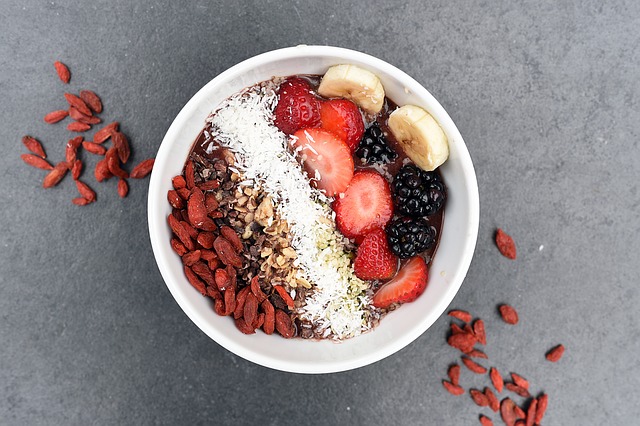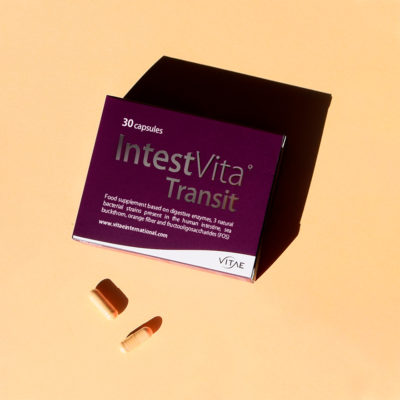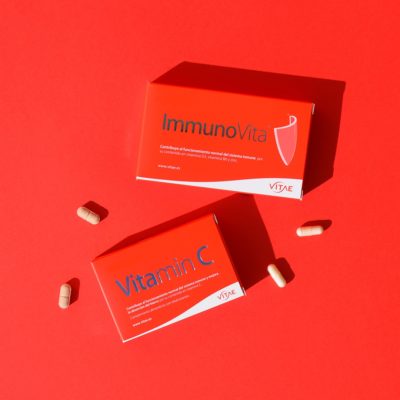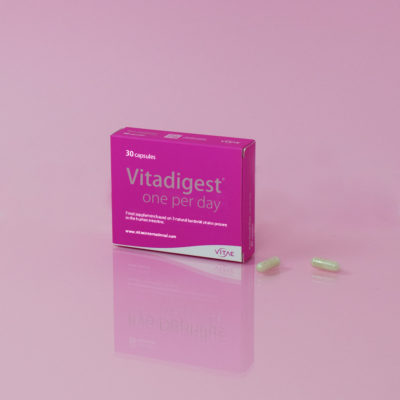We are increasingly aware of the importance of the interaction of food with our body, how it influences our mood, hormones, digestive health and as a consequence our immune system (conscious nutrition). In short, we must have an overall understanding of our body and mind, and how they are interrelated with each other. In Vitae we always talk about the oriental concept that says that we must promote health and not disease. It is important to understand that it is not just about eating right or wrong, about practising sports or not, but about an overall well-being that starts from consciousness. For example, if we just incorporate a balanced diet, rich in fruits, vegetables, organic products etc. but we still do not sleep the necessary hours and are not managing stress and anxiety, it will not be enough. The same goes for food supplements, they are not a substitute for a healthy diet nor a quick fix for a problem. They do assist us with the objective of improving our overall well-being and quality of life.
How to improve our well-being and quality of life? Start by listening to ourselves, honestly and without reproach. What does our body tell us? Is it normal that we are stressed? What prevents us from a good night’s sleep? Why do we wake up tired? We have to be critical of ourselves and understand that, perhaps, our vision and vital perception and the way we lead our lives needs a change.
Leyre Bertran, a member of the Vitae team and nutritionist, talks to us about the world of nutrition, food supplements and general state of health.
- How do you currently perceive the world of nutrition, are we eating well or are we facing a society that is getting unhealthier?
I believe that the world of nutrition has evolved a lot over the years. Compared to 50-100 years ago, it is evident that we feed ourselves in a very different way, and it has not been until recently that food trends have resurfaced and imposed more than ever (which have always existed interrupted, due to conflicts, wars or ideologies) such as vegetarianism, veganism, flexitarianism (consuming products of animal origin sporadically), etc. I do not think that feel that involved, but as consumers we now start demanding more than before and we want to know what is in our food, although at the same time we neglect healthy nutrition due to lack of time and the hectic rhythm of our lives. I suppose this is due, to the easy access we have to so much information related to food and the diseases it can cause if it is not adequate. The diseases that have been seen to be related to improper diets and sedentary lifestyle are, obesity, atherosclerosis, hypertension, cancer, diabetes mellitus and osteoporosis, according to the FAO (food and agriculture organization). I think that as a society we value life, wanting to enjoy and make the most of it and being aware that bad eating habits could have negative consequences possibly creates anguish. Our modern lifestyle is completely different from before. We live a fast passed and rushed life, we want to do everything, not getting enough sleep, working many hours and enjoy a social life, and I think we are compromising with our diet; poorly planned food, eating out in restaurants or fast food low in nutritional value.
- Food intolerances and allergies are emerging more frequently, do you think this is due to the little awareness we have had for many years?
Allergy and a food intolerance are forms of adverse reaction to food or food additive, but in the pathogenesis of an allergy there is an immune-based mechanism while in the food intolerance not. The exact knowledge of food allergens and the mechanisms involved remains scarce, considering that in the last 10 years the incidence of allergies and intolerances does not stop increasing. There are several hypotheses, and nothing a 100% confirmed. As for allergies, it is considered that we are now much more protected against infections through vaccines and hygiene products, causing the body not to be so exposed to germs and weakening the immune system thus resulting in food allergies. On the other hand, it is considered that overexposure to certain foods or food additives is what has causes more food intolerances. So I think that more than our lack of awareness about food, the increase in this type of reaction is due to the alteration of the food we eat today (transgenic) by the food industry and over- protection of our organism against germs.
- An unhealthy diet makes us physically and mentally ill, do you agree?
Not eating properly clearly affects the physical level, since it can have acute effects (symptomatology at the digestive level, for example) and also chronic effects (heart disease, obesity, diabetes, etc.) But, in addition, although it does not seem so evident, there are several studies that have investigated the relationship between diets low in fruit, vegetables, whole grains, fish, meat and olive oil, with the increased risk of becoming mentally ill. These foods are rich in folates, magnesium, vitamins of group B, selenium, zinc, fiber, polyphenols, and polyunsaturated fatty acids and their relationship with diseases such as depression has been evident. So, yes, I agree with your statement, although surely more information is lacking in relation to the mental part.
- What does eating healthy and balanced mean?
A healthy and balanced diet, from my point of view, is based on the incorporation of carbohydrates, a protein part and fruits and vegetables in all meals of the day. The most important are breakfast, lunch and dinner. If there is a good contribution of these components at these three times of the day, the appearance of many diseases can be avoided. It is true that there are trends now that consider it is not necessary to have breakfast. When I studied, I was very stressed about the importance of not forgetting any food and I remain firm with that position. Personally, breakfast gives me the energy I need to start my day and I could not do the same if I waited until midmorning or lunch to eat something. Even so, each person is different and has different needs and preferences, as long as the intake of the essential nutritional components I mentioned are not being compromised.
- As a nutritionist, I suppose you will have your favorite food. Which do you think are essential to incorporate in our diet? (Regardless of specific pathologies)
As I said before, I consider carbohydrates, protein, fruit and vegetables essential. But to be more concrete, I think that dairy products are being put aside a bit and have a lot of potential, we should not forget them. I include dairy in my daily routine, as they are a very good source of protein and calcium (among other things) and very necessary for the functioning of our body. A yogurt with nuts and oatmeal is my favorite snack. It is clear that each person is different and pathologies can interfere; In this case, a specific diet can be incorporated to ensure the intake of a balance in nutritional components.
- Last but not least, do you think they should teach nutritional education in schools?
Yes, children should be educated from an early age to eat well and show them the consequences if it is not done properly. Perhaps, in the first years of school simply explain notions of food that should be eaten every day and those that are best avoided and eaten only sporadically. When they are older, more complex themes could be introduced such as the nutritional composition of a dish in order to be healthy and what diseases are related to a poor diet, a sedentary lifestyle and accelerated lifestyle. In addition, this also helps parents to know that it is appropriate for children to have breakfast and when they grow up they continue to implement it with a sandwich, fruit or nuts instead of a bag of chips and a sugary drink.
If you liked this article about conscious nutrition you can visit our blog. There, you will find more interesting posts about nutrition, healthy lifestyle and other topics.










